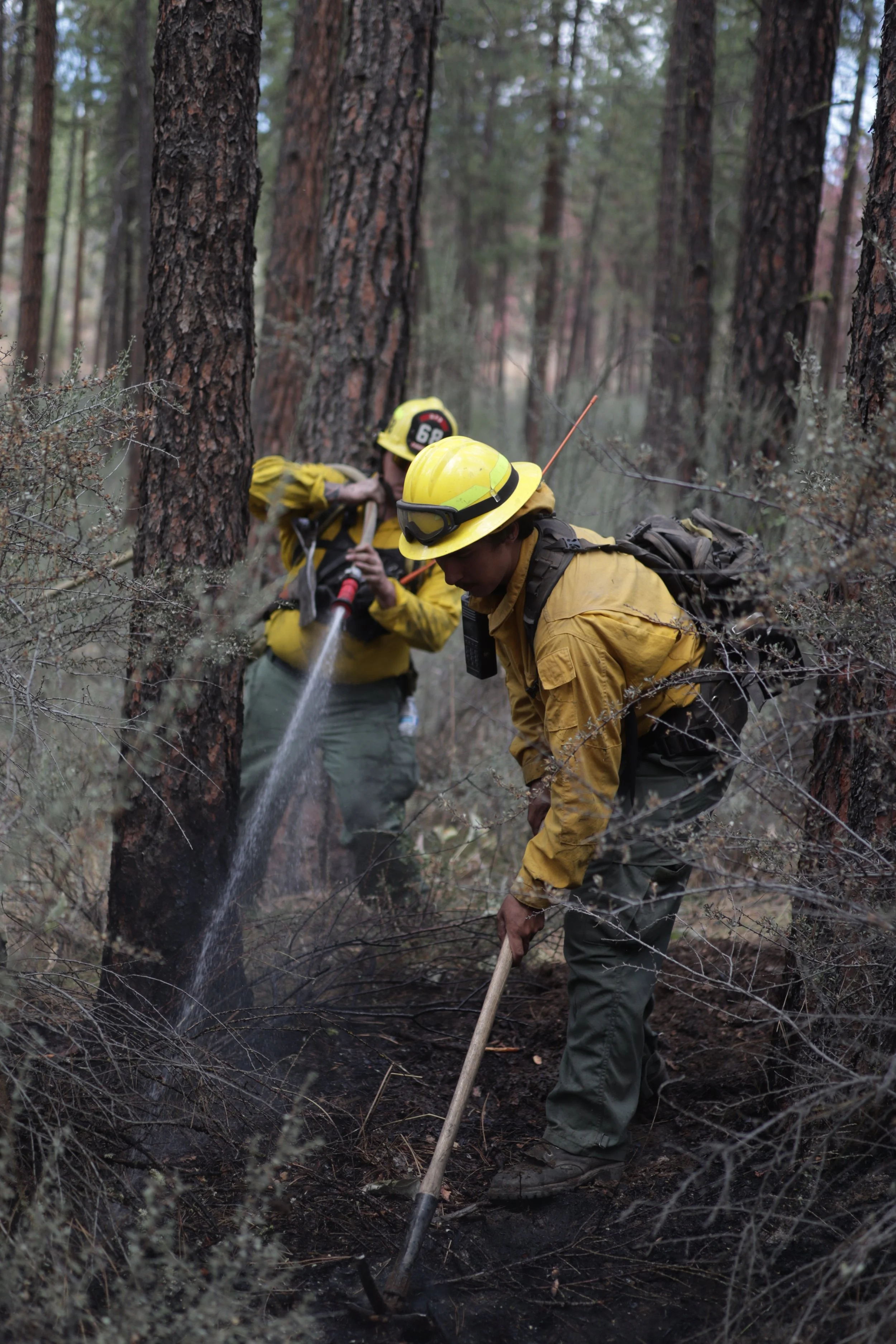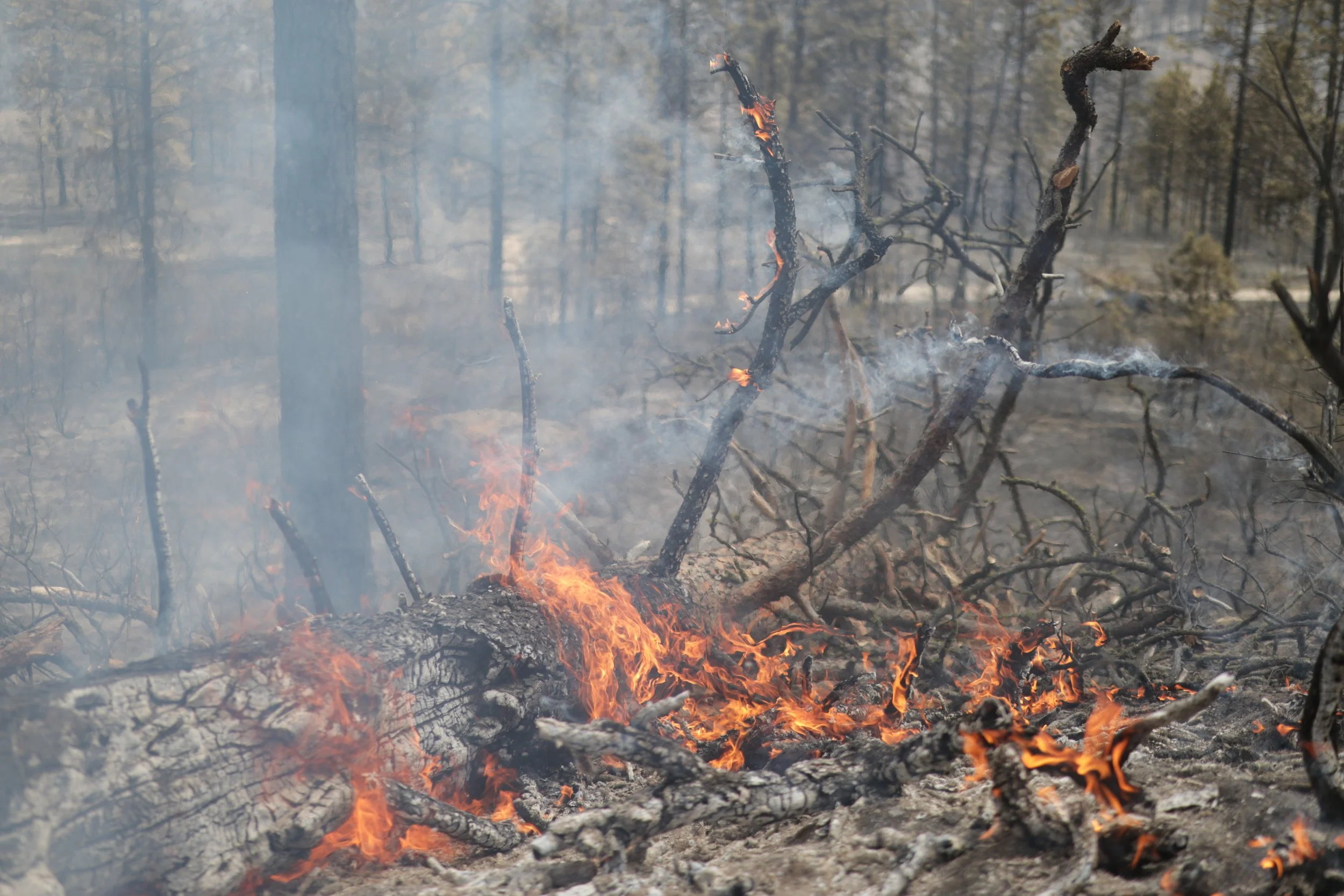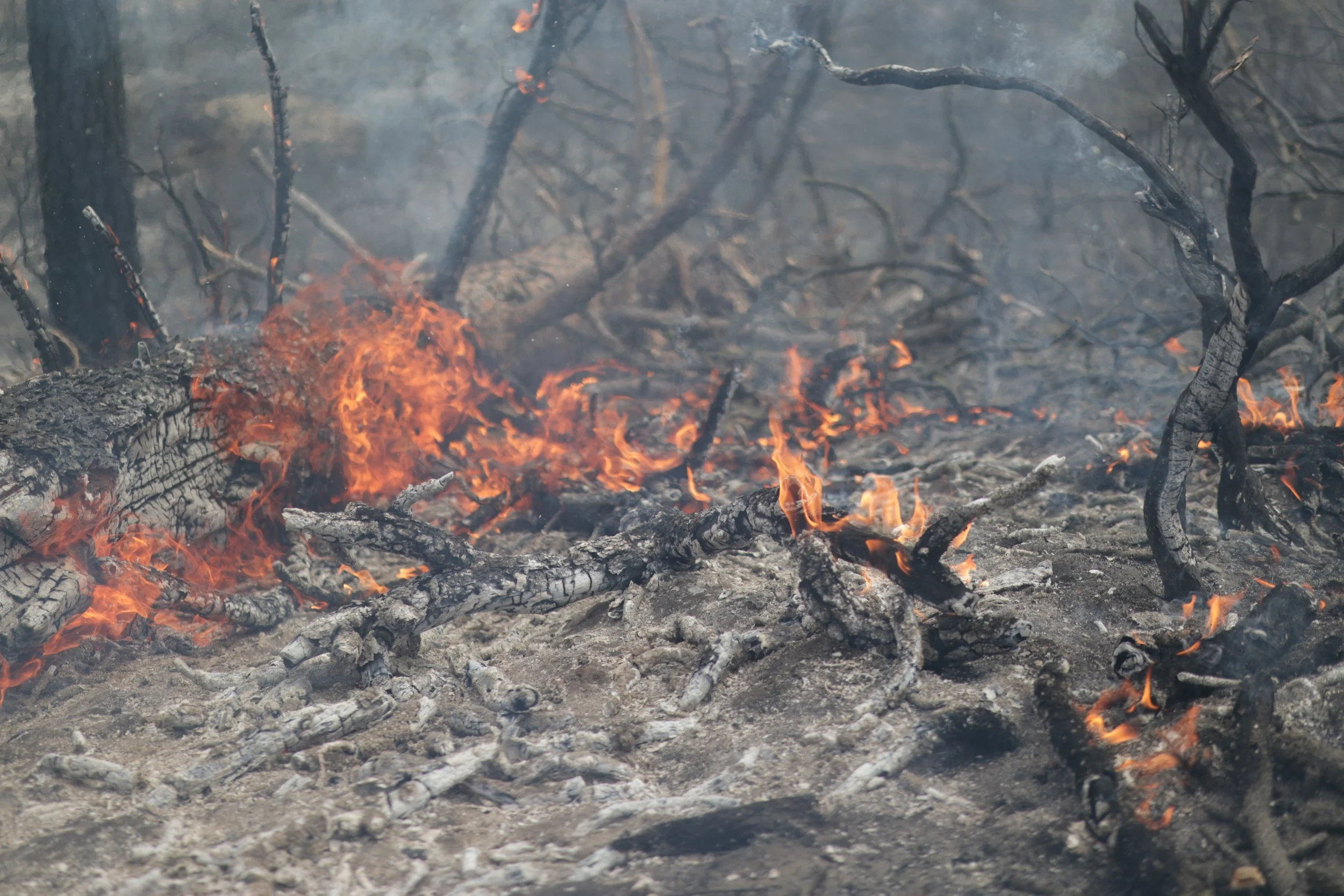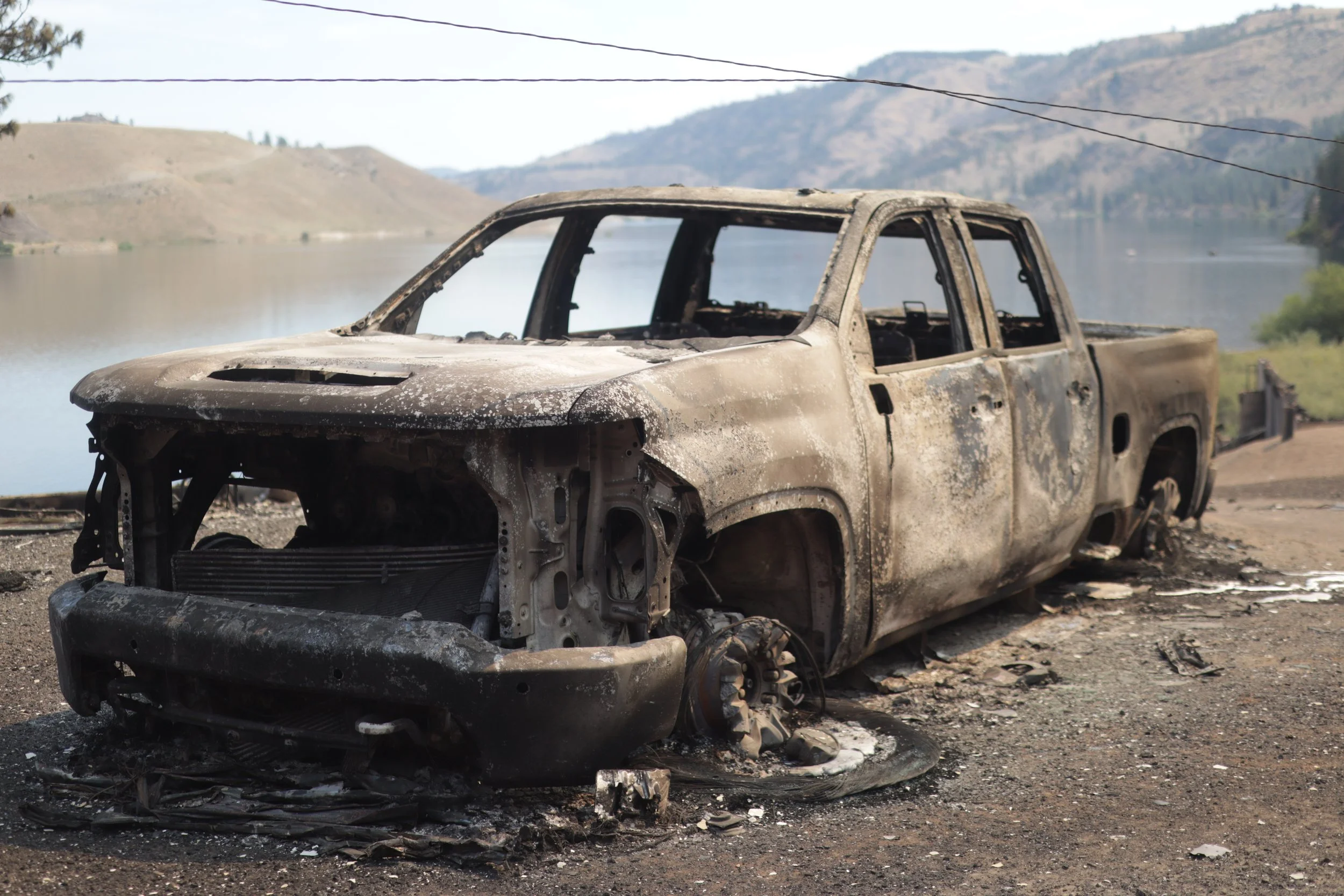What I learned from the Western Pines Fire
When I first saw the smoke rise over the hills on Wednesday, July 9, I was driving home from Cheney. Within minutes, Fire Watch confirmed what my gut already told me — it was growing fast. I dropped Winnie off at home, changed into my field gear, and got out there.
For three straight days, I documented as much as I could. From Cayuse Cove to Western Pines Road, from the destruction at Moccasin Bay to the cliffs above Seven Bays. I walked through scorched fields, down roads where the fire had jumped with the wind, and stood with crews who were holding the line between fire and what was left to save.
What I saw wasn’t just charred grass and broken structures — it was the cost of policies written far away, by people who will never have to watch their neighbors lose everything in a matter of hours.
Over 5,000 acres have burned. Moccasin Bay was hit hard — full-time homes, weekend cabins, histories — all gone. I rode alongside a local fire commissioner who stopped flames from overtaking a house perched on a cliff next to Moccasin Bay. No one waited for backup. Crews from Harrington, Sprague, Davenport, Reardan, Wilbur, and Creston worked around the clock, no breaks, no excuses. And as always, they did it with grit and heart.
During those same days, another fire sparked just outside of Odessa — quickly extinguished, thanks to fast action. Meanwhile, a separate blaze in Stevens County, the Hope Fire, continues to burn.
Wildfires are no longer a rare event in Eastern Washington. We’ve all heard the term “wildfire season” tossed around, as if this is just the way it is now. But it doesn’t have to be. Growing up, fires like these didn’t happen at this scale. And yet now, it’s as though we’re just expected to accept it — to adapt—while agencies from the west side of the state continue to control how the east side manages its land.
I have to ask: who benefits from that? Because it certainly isn’t us.
While homes in our counties burn and our local crews carry the weight, the west side holds the power, making decisions on policy, land management, and funding without ever setting foot out here. Meanwhile, across the river from the Western Pines Fire, tribal members watched closely and stayed ahead of the flames. Their land remained mostly untouched. Why? Because they take care of it.
They don’t wait for a fire. They don’t scramble when it starts. They manage their wildlands through cultural burning, timed to support ecosystems, reduce fuel, and maintain natural cycles. It’s proactive, not reactive. It works.
We could be doing the same, but instead, we're trapped under a system that ignores the practical knowledge of those who live closest to the land. We’re not given the same flexibility or resources. We’re told what to do from the other side of the Cascades — where decisions are made in offices, not on the fire line.
I joked with firefighters this past week that I was “auditioning” to be one of them — but in truth, I was proud just to be out there, bearing witness. Reporting. Recording. Telling the stories of people whose homes, land, and livelihoods deserve more than just a reaction. They deserve foresight. And respect.
After standing among ashes, watching fields vanish, and seeing neighbors lose everything, I couldn’t write anything else.
Eastern Washington deserves better. We deserve a say in how our land is protected — not just after the fire starts, but long before.





















